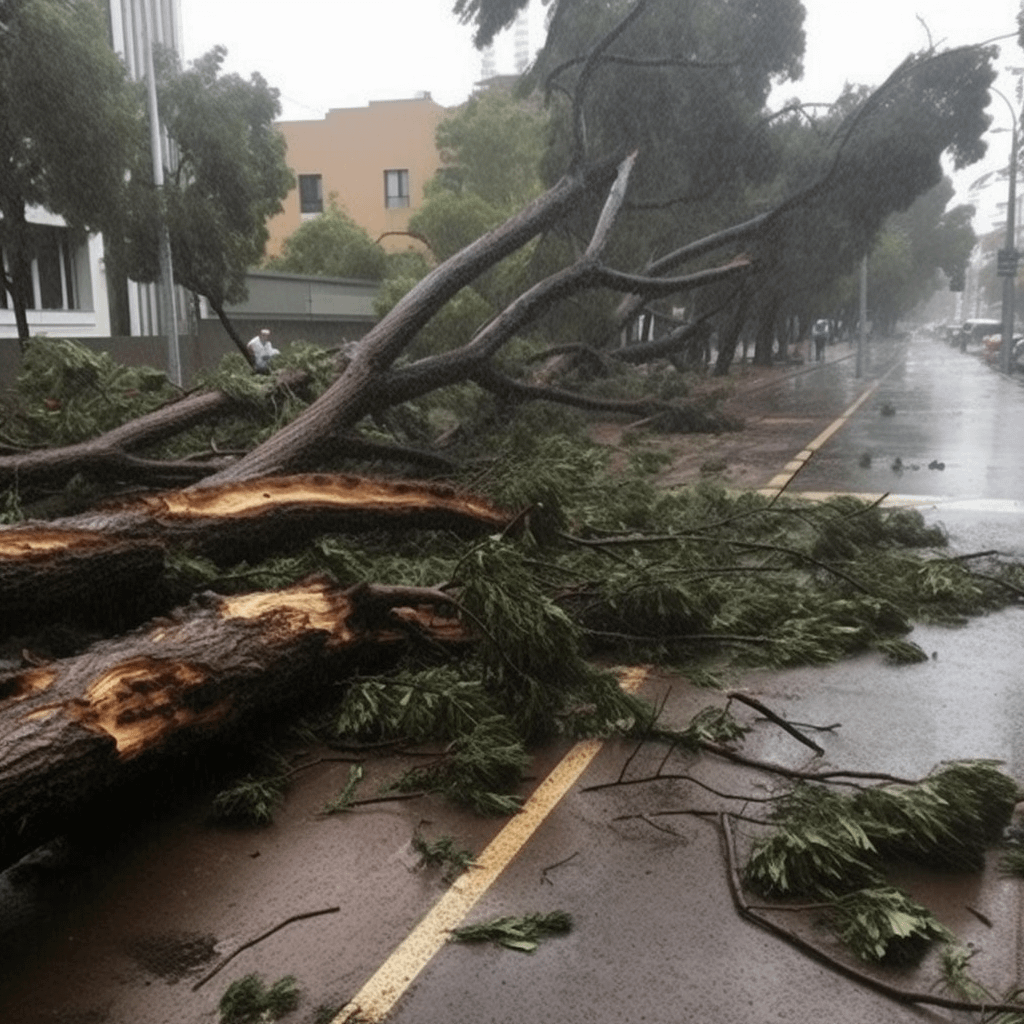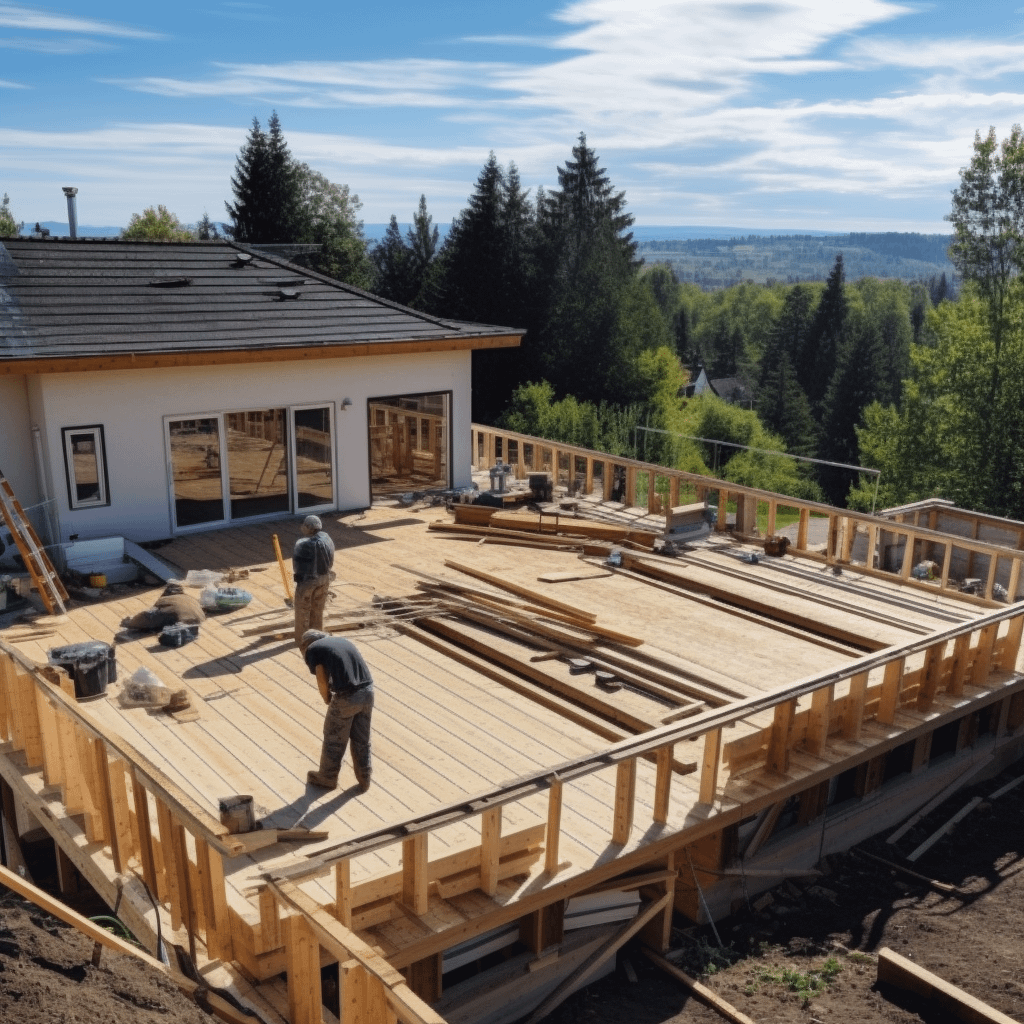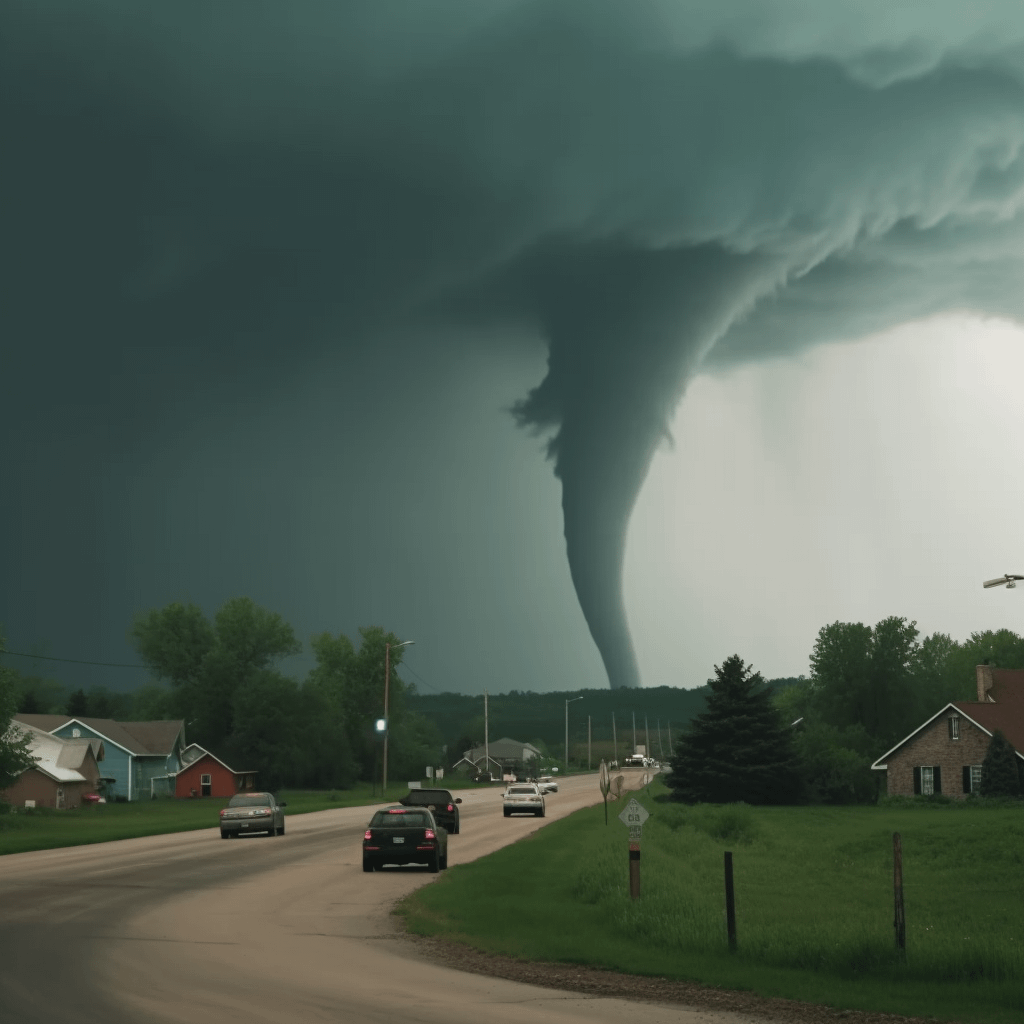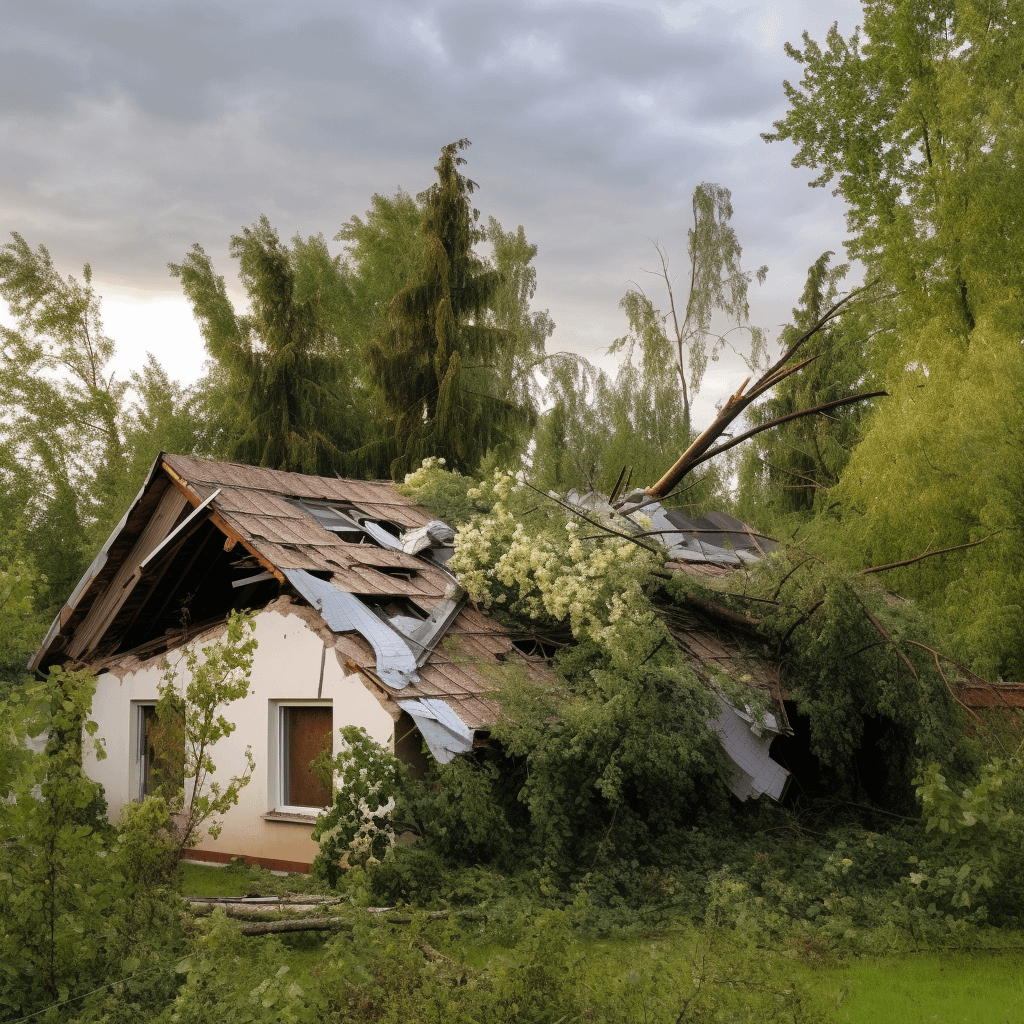Tornadoes are one of the deadliest and most catastrophic natural events. They cannot be precisely predicted or anticipated, but they develop rapidly, last for mere minutes at a time, and leave ruinous damage and even fatalities in their wake. Once the tornado is over, assessing your losses can be physically and emotionally taxing, especially if you aren’t certain your homeowners insurance policy covers tornado damage.
Whether you rent or own your property, if you’ve been affected by a tornado, you are probably anxious to understand how you may cover your losses. At Wallace Law, our tornado damage insurance dispute lawyers understand the scenarios where tornado damage is covered under insurance as well as how home insurance deductibles work.
If you are worried that your insurers are underpaying, denying, or delaying your good faith tornado damage insurance claim, our team will research your claim and walk you through your legal rights. If necessary, we will also fight for your rightful tornado insurance claim in court.
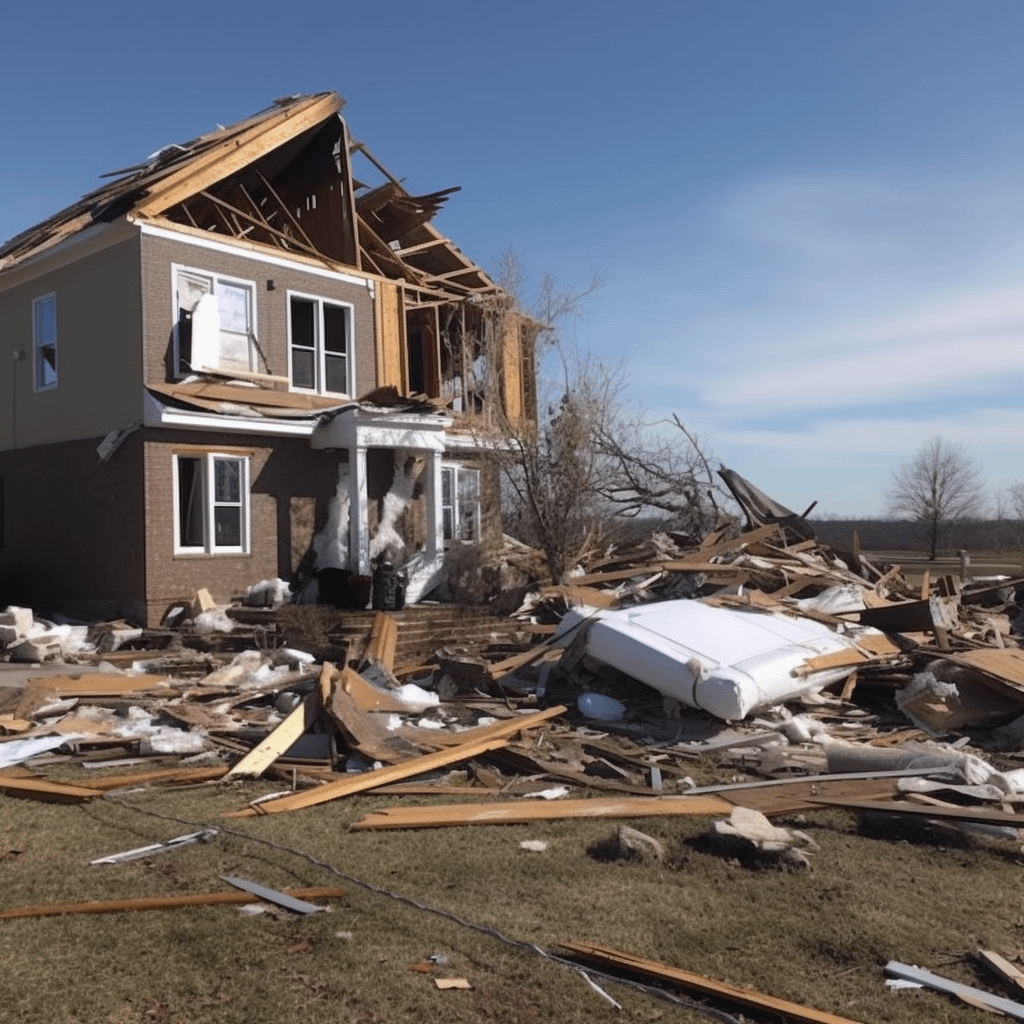
When Are Tornadoes Most Common?
Most tornadoes occur during specified “seasons” in certain areas. For instance, peak tornado season is May – July for the states located in the plains, and early spring on the Gulf Coast. Tornadoes can also happen any time of the day, although most occur during 4 – 9 p.m.
Wisconsin is usually most prone to tornadoes between April and September. In 2023, however, Wisconsin saw 15 tornadoes in March alone, further showing the sheer unpredictability of these destructive storms.
Where Are Tornadoes Most Common?
Long ago the media dubbed a particular area of the central US with heavy tornado activity as “Tornado Alley.” However, this name is misleading. Tornadoes can occur (and have occurred) anywhere in the U.S.
Tornado season naturally shifts from certain regions of the U.S to others as the seasons change. More tornadoes are likely in the Southeast region of the country during colder months, but the likelihood of tornado activity shifts northward through spring and summer.
The fact that an area is defined as tornado alley leads many people to believe that they do not live in an area where tornadoes can occur. Wisconsin is not typically included as part of Tornado Alley, but the state experiences an average of 23 tornadoes per year.
What Kind of Damage is Caused by a Tornado?
There is no limit to the type of damage that can be caused by a tornado. While smaller tornadoes may result in property damage, large tornadoes can result in complete leveling of towns, widespread damage to crops and livestock, as well as the loss of lives.
The most common types of damage caused by tornadoes include:
- Roof damage: If you’re familiar with images of roofs being lifted off of buildings, you might think it’s from a tornado striking the building. While that can be the case, the most common reason is due to a differential in internal and external pressure that builds until the roof lifts from the building structure.
- Shattered windows and doors: Again, the pressure difference between the interior and exterior of the building is so vastly different during a tornado that the windows and sliding glass doors may shatter due to the force.
- Broken and damaged garage doors: Garage doors are constructed with lightweight materials, and are more likely to become damaged during a tornado than a regular wooden or metal door.
- Damaged siding: Siding on your home, like wood or vinyl, may become damaged from debris, but can also be ripped from your home due to high winds.
The damage sustained during a tornado is due to high winds. The wind determines the strength of the tornado, which ranges from F1 to F5, with F5 being a very violent tornado with winds around 300 mph. There are also different types of tornadoes, like multi-vortex tornadoes and waterspouts.
An example of catastrophic tornado damage can be found in the case of the Oakfield, Wisconsin tornado of July 18, 1996. Although no one was killed (17 people were injured), the property damage was estimated to be over $40 million for this small, 1,000-person town. In addition, farms and farming equipment were damaged. The National Guard was deployed to help the town recover from the disaster.
Related Insurance Claims
Property Insurance Dispute Lawyer
Commercial Property Insurance Dispute Lawyer
Do I Need Homeowners Insurance?
If you do not have homeowners insurance and do not live in an area where tornados are likely, you might think that you do not need property damage insurance coverage. This may be a mistake.
Homeowners insurance serves many purposes. It helps with the actual or replacement costs of your dwelling, as well as the cost of replacement of items within your home. You can also get coverage for loss due to theft of your possessions, and personal liability coverage that protects you if someone were to get hurt in your home.
Having dwelling coverage is important if a tornado strikes your home. After the tornado is over, you might discover property damage that you did not anticipate. Sometimes, the damage might exceed your expectations. In such scenarios, filing a homeowners insurance claim might be your best bet in mitigating losses from a tornado damage.
Is There Tornado Insurance?
Most basic homeowners policies do cover damage from tornadoes, so there is usually no need to elect for special tornado coverage. You might want to double-check with your insurance carrier to ensure you have enough dwelling coverage, and also, to understand your home insurance deductible.
While your insurance company should help you recover losses after you file a claim for tornado insurance, this may not always be the case. An insurance company is a for-profit entity, and sometimes, it may attempt to deny your coverage for all the wrong reasons. If this happens, a tornado damage lawyer is your ally in getting the compensation you need.
Do I Need Extra Tornado Damage Insurance Coverage?
Most insurance policies have a standard wind and hail coverage section, which includes damage from tornadoes. However, if you live in an area that is particularly prone to tornadoes, your deductible may be higher than in other places.
You should not need additional tornado insurance, but if your coverage has a separate wind and hail deductible, you should be aware of it. This means in the case of a tornado, you would be subject to a different and additional deductible before your insurance carrier will pay your claim. It is a good idea to check your policy documents and further emails/addendums, understand what it covers and what it does not, and promptly communicate any doubts with your insurance agent.
Does Insurance Cover Tornado Damage?
Generally, yes. Since the damage sustained by a tornado is usually from wind, the claim is typically filed under the provisions of the policy that cover wind, rain, and trees. However, flooding from a tornado is usually a separate policy. This is because flooding requires a specific flood policy, which may not be part of a standard policy.
Following are the types of damage typically covered under a homeowners insurance policy:
- Dwelling coverage: This coverage provides the actual or replacement cost of damage to the structure of your home. For instance, if your home is completely destroyed, your coverage would pay to rebuild it. However, the coverage only extends to rebuilding the actual value of your home, not the market value of your home if you were to sell it.
- Personal property coverage: This coverage pays for the replacement of the things inside your home, like furniture, appliances, and clothing. This type of actual or replacement cost coverage is usually calculated as a percentage of your total dwelling coverage.
- Additional living expenses coverage: What happens if you cannot live in your home due to the extent of the damage? Your additional living expenses coverage, or ALE, kicks in. This type of coverage reimburses you for hotel bills, meals, pet boarding, and other necessary items for living outside your home while it is being repaired.
Tornado Insurance Deductibles
Most homeowners insurance policies have deductibles, or amounts that must be paid before your coverage begins. Deductibles can be tricky, and there are likely multiple deductibles on your policy. For instance, your policy may have a wind deductible in addition to your standard policy deductible. These deductibles might not be a set amount, but a percentage of your policy, which can add up to a larger amount than you expect to pay in the event of a natural disaster.
It’s also important to remember that there’s a big difference between actual and replacement costs. Actual cost refers to the amount an item is currently worth, while replacement cost refers to the amount you must pay to replace an item that is destroyed with a like item. For instance, if you have a 48″ television that is ten years old, it may only be worth $25-$50, but if you need to replace it, you’ll likely have to pay several hundred dollars.
For this reason, you’ll find that policies that have replacement cost coverage are slightly more expensive, although arguably worth the investment in the event of a loss.
How Do I File a Tornado Damage Insurance Claim?
If your home or property suffered tornado damage, you may be wondering how to file an insurance claim. Before you file a tornado damage insurance claim, make sure that your insurance documents are safe and protected. If you do not have digital copies that you can access through a company website, make sure your paper copy is in a lockbox or otherwise, safely stored.
Although each company’s operations are slightly different, the claims process and your responsibility as a homeowner can be broken down into a few general steps:
- Review all relevant paperwork related to your insurance: Your policy likely has a section with contact information and a list of “what to do” if you experience a loss.
- Document the damage and make a list: Take pictures, keep notes, and log all damages and supplemental damages to your property.
- Get your home professionally inspected: When filing a homeowners insurance claim, it’s essential to get your home professionally inspected if it is still standing. This is because there could be foundational issues following the tornado that are not visible but need to be addressed.
- Make detailed notes and record all communications with your insurer: If your insurer disputes your claim, or if there are questions about your coverage (like when you filed your tornado insurance claim or whether you reported certain damage), you’d want to have detailed notes in hand.
- Contact a tornado damage dispute attorney: Insurance companies sometimes do not pay the full claim, or extensively delay payouts. Your tornado damage attorney can help ensure that you are paid the full amount you are owed on time. They will manage all hiccups along the way so you are free to take care of everything else.
How Can a Tornado Damage Lawyer Help
Your insurer may deny your tornado insurance coverage if you haven’t paid your premiums on time, filed your claim incorrectly, or haven’t filed your claim in a timely fashion.
There may also be instances when an insurer delays or denies your claim for reasons outside the limitations of the policy, or undervalues your claim so that you aren’t paid what you need to help replace your personal property. While your insurance coverage is there to protect you, insurance companies are businesses that do not like to lose money. Some insurers may even act in an unethical manner to avoid payouts.
In such cases, you may have a bad faith claim against your insurance carrier, and you’ll need the help of an experienced tornado damage lawyer to help you dispute the claim denial and file a lawsuit against your carrier, if necessary.

Contact a Tornado Insurance Dispute Lawyer Today
If you’ve been affected by a tornado, there’s no time to waste. You already have a lot to figure out, and fighting a bad faith insurance company on your own should not be part of your to-do list.
Our team of tornado insurance dispute lawyers at Wallace Law is here to put our experience fighting insurance companies on your side to ensure you get the coverage you need as soon as possible. We know all the tricks that insurers use to deny or delay genuine tornado insurance claims, all of which we use to our advantage while negotiating with your insurer or representing you in a lawsuit. Contact us today to learn more.

